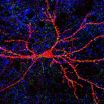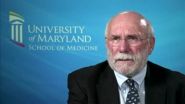Professor examines terrorist propaganda
Research could provide law enforcement with additional tools to capture terrorists
2014-10-10
(Press-News.org) New research out of Queen's University could give insight into what terrorists are thinking. Professor David Skillicorn (School of Computing) analyzed language used in two jihadist magazines to gain intelligence about terrorist strategy.
He examined the language used in Inspire, an online magazine reportedly published by al-Qaida in the Arabian Peninsula, which aims to increase the availability of their message, and the Islamic State News published by ISIS. Inspire has attracted attention because of its goal of attracting lone-wolf attacks in Western countries.
"The payoff from understanding how this all works is that intelligence and law enforcement analysts can get insight into what the 'bad guys' are doing from the speeches and documents that they produce, often for other purposes," says Dr. Skillicorn. "And because so much of it is impossible to manipulate because it's subconscious, it provides unfiltered insights."
Dr. Skillicorn's research focuses on reverse engineering language to get access to the mental state that generated it. This latest paper is one in a series exploring how mental state affects language (e.g. influence in elections, deception in legal proceedings, and fraud in financial statements), and how language reveals mental state (e.g. jihadist language in Islamist forums).
The research revealed several facts including:
Jihadist language intensity has been steadily increasing over the past few issues of Inspire, after being much more stable during the Anwar al-Awlaki years. al-Awlaki was a senior talent recruiter for al-Qaida.
Inspire is experimenting with using gamification (the real-life use of gaming ideas such as levels of achievement and competition) strategies to increase motivation for lone-wolf attacks and/or to decrease the reality of causing deaths and casualties. It's hard to judge whether this is being done deliberately, or by osmosis — the levels of gamification language waver from issue to issue.
The intellectual level of these magazines is comparable to other mass market magazines — they aren't particularly simplistic, and they assume a reasonably well-educated readership.
INFORMATION:Dr. Skillicorn worked with Edna Reid (James Madison University) on the research. The paper was recently published in Security Informatics.
ELSE PRESS RELEASES FROM THIS DATE:
Fingolimod in new therapeutic indication: Added benefit not proven
2014-10-10
The immunosuppressive drug fingolimod (trade name: Gilenya) was approved for an expanded therapeutic indication in May 2014: It is now also available for adults with highly active relapsing remitting multiple sclerosis (RRMS) who had received other pretreatment than interferon beta (IFN-β). In an early benefit assessment pursuant to the Act on the Reform of the Market for Medicinal Products (AMNOG), the German Institute for Quality and Efficiency in Health Care (IQWiG) examined whether the drug offers an added benefit over the appropriate comparator therapy in this ...
Mechanism that repairs brain after stroke discovered
2014-10-10
A previously unknown mechanism through which the brain produces new nerve cells after a stroke has been discovered at Lund University and Karolinska Institute in Sweden. The findings have been published in the journal SCIENCE.
A stroke is caused by a blood clot blocking a blood vessel in the brain, which leads to an interruption of blood flow and therefore a shortage of oxygen. Many nerve cells die, resulting in motor, sensory and cognitive problems.
The researchers have shown that following an induced stroke in mice, support cells, so-called astrocytes, start to form ...
New technique enables increasingly accurate PET scan to detect cancer and heart conditions
2014-10-10
A novel technique which reduces image degradation caused by respiratory motion during a PET scan was developed in a recent study at the University of Eastern Finland. PET scanning is routinely used to detect cancer and heart conditions. The new technique presented in the PhD thesis of Tuomas Koivumäki, MSc (Tech.), is based on bioimpedance measurement and it allows for image reconstruction at a specific phase of the patient's breathing pattern. This, in turn, makes it possible to reduce image degradation caused by motion.
In the future, the newly developed technique ...
LSU Health tumor registry data find acadiana colon cancer rates among nation's highest
2014-10-10
New Orleans, LA – A special study using data from LSU Health New Orleans School of Public Health's Louisiana Tumor Registry has found that colorectal cancer incidence rates in the Louisiana Acadian parishes are among the highest in the United States. This study appears to be the first to identify a high rate of cancer in a large, regional, US founder population, raising the possibility of a genetic predisposition. Alternatively, an unidentified, robust environmental risk factor may be present. The paper is published online in Clinical and Translational Gastroenterology, ...
An enzyme and synaptic plasticity
2014-10-10
A small, "empty" space teeming with activity: a synapse is a complex structure where the neural (electrical) signal from the presynaptic neuron, as it travels towards its target –a muscle, a gland or another neuron – turns into a chemical signal capable of crossing the synaptic space before becoming electrical again once on the other side. A synapse is a "dynamic" space not only because of the endless work that goes on there, but also for its ability to change its action over time (synaptic plasticity) as a result of either normal physiological processes (e.g., ...
The Lancet Global Health: Widely used sanitation programs do not necessarily improve health
2014-10-10
The sanitation intervention delivered under the terms of the Government of India's Total Sanitation Campaign—the world's largest sanitation initiative—provided almost 25 000 individuals in rural India with access to a latrine. However, it did not reduce exposure to faecal pathogens or decrease the occurrence of diarrhoea, parasitic worm infections, or child malnutrition.
"The programme is effective in building latrines, but not all households participate"*, explains lead author Professor Thomas Clasen from Emory University, Atlanta, USA and the London School ...
University of Maryland School of Medicine begins Ebola vaccine trials in Mali
2014-10-10
VIDEO:
Dr. Myron M. Levine, Director of the Center for Vaccine Development at the University of Maryland School of Medicine describes the Ebola vaccine testing taking place in Mali, West Africa.
Click here for more information.
Professor Myron M. Levine, MD, Director of the Center for Vaccine Development (CVD) at the University of Maryland School of Medicine (UM SOM), and UM SOM Dean E. Albert Reece MD, PhD, MBA, announced today that the CVD, in conjunction with its sister institution, ...
TSRI scientists create mimic of 'good' cholesterol to fight heart disease and stroke
2014-10-10
LA JOLLA, CA – October 9, 2013 - Scientists at The Scripps Research Institute (TSRI) have created a synthetic molecule that mimics "good" cholesterol and have shown it can reduce plaque buildup in the arteries of animal models. The molecule, taken orally, improved cholesterol in just two weeks.
This research, published in the October issue of Journal of Lipid Research, points scientists toward a new method for treating atherosclerosis, a condition where plaque buildup in the arteries can cause heart attacks and strokes.
"Atherosclerosis is the number one killer ...
Fish moving poleward at rate of 26 kilometers per decade
2014-10-10
Large numbers of fish will disappear from the tropics by 2050, finds a new University of Britsh Columbia study that examined the impact of climate change on fish stocks. The study identified ocean hotspots for local fish extinction but also found that changing temperatures will drive more fish into the Arctic and Antarctic waters.
Using the same climate change scenarios as the Intergovernmental Panel on Climate Change, researchers projected a large-scale shift of marine fish and invertebrates. In the worst-case scenario, where the Earth's oceans warm by three degrees ...
Using a novel biological aging clock, UCLA researchers find obesity accelerates aging of the liver
2014-10-10
Using a recently developed biomarker of aging known as an epigenetic clock, UCLA researchers working closely with a German team of investigators have found for the first time that obesity greatly accelerates aging of the liver. This finding could explain the early onset of many age-related diseases, including liver cancer, in obese subjects
Although it had long been suspected that obesity ages a person faster, it hadn't been possible to prove the theory, said study first author Steve Horvath, a professor of human genetics at the David Geffen School of Medicine at UCLA ...
LAST 30 PRESS RELEASES:
Exploring the link between hearing loss and cognitive decline
Machine learning tool can predict serious transplant complications months earlier
Prevalence of over-the-counter and prescription medication use in the US
US child mental health care need, unmet needs, and difficulty accessing services
Incidental rotator cuff abnormalities on magnetic resonance imaging
Sensing local fibers in pancreatic tumors, cancer cells ‘choose’ to either grow or tolerate treatment
Barriers to mental health care leave many children behind, new data cautions
Cancer and inflammation: immunologic interplay, translational advances, and clinical strategies
Bioactive polyphenolic compounds and in vitro anti-degenerative property-based pharmacological propensities of some promising germplasms of Amaranthus hypochondriacus L.
AI-powered companionship: PolyU interfaculty scholar harnesses music and empathetic speech in robots to combat loneliness
Antarctica sits above Earth’s strongest “gravity hole.” Now we know how it got that way
Haircare products made with botanicals protects strands, adds shine
Enhanced pulmonary nodule detection and classification using artificial intelligence on LIDC-IDRI data
Using NBA, study finds that pay differences among top performers can erode cooperation
Korea University, Stanford University, and IESGA launch Water Sustainability Index to combat ESG greenwashing
Molecular glue discovery: large scale instead of lucky strike
Insulin resistance predictor highlights cancer connection
Explaining next-generation solar cells
Slippery ions create a smoother path to blue energy
Magnetic resonance imaging opens the door to better treatments for underdiagnosed atypical Parkinsonisms
National poll finds gaps in community preparedness for teen cardiac emergencies
One strategy to block both drug-resistant bacteria and influenza: new broad-spectrum infection prevention approach validated
Survey: 3 in 4 skip physical therapy homework, stunting progress
College students who spend hours on social media are more likely to be lonely – national US study
Evidence behind intermittent fasting for weight loss fails to match hype
How AI tools like DeepSeek are transforming emotional and mental health care of Chinese youth
Study finds link between sugary drinks and anxiety in young people
Scientists show how to predict world’s deadly scorpion hotspots
ASU researchers to lead AAAS panel on water insecurity in the United States
ASU professor Anne Stone to present at AAAS Conference in Phoenix on ancient origins of modern disease
[Press-News.org] Professor examines terrorist propagandaResearch could provide law enforcement with additional tools to capture terrorists



